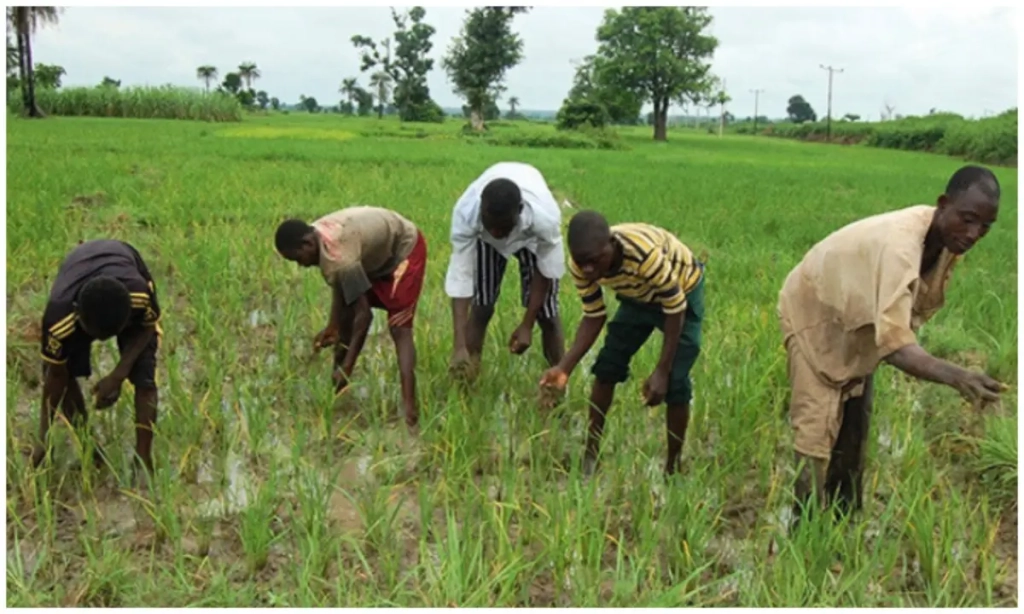Farmers in Plateau State, Nigeria, are raising alarms over an unusually delayed rainy season that has left crops withering across several southern communities, stoking fears of severe harvest losses and heightened food insecurity. The prolonged dry spell, concentrated in the local government areas of Langtang North, Langtang South, Mikang, Shendam, Wase, and Qua’an Pan, contrasts sharply with steady rainfall in other parts of the state, exacerbating concerns about regional climate variability.
Staple crops such as maize, rice, groundnuts, millet, and beans have shown signs of distress due to insufficient rainfall, with many fields reported dry and underdeveloped. Farmers describe the situation as unprecedented, noting that inconsistent drizzles over the past month have failed to sustain crops at critical growth stages. Nandul Solomon, a farmer in Langtang South, explained that even sporadic showers lacked the intensity to nourish plants, leaving them vulnerable. “If this continues, entire harvests could be lost,” he said, estimating potential financial setbacks in the millions of naira for those reliant on yields not yet mature enough to withstand prolonged drought.
The crisis threatens both livelihoods and food supplies in a region where agriculture drives the local economy. Yusuf Maidoki, a groundnut producer in Shendam’s Yelwa community, shared his anxieties after investing heavily in this year’s planting. “We banked on a good harvest, but now everything is uncertain,” he said. Similar fears gripped Joseph Domle, a Langtang North farmer, who warned of cascading economic impacts if rains do not arrive soon. “Farming is how we survive. Without it, families will struggle,” he added.
While Plateau State’s northern zones have seen normal rainfall, the stark disparity has left southern farmers questioning the causes of the irregular weather pattern. Experts have long highlighted Nigeria’s vulnerability to climate shifts, which disrupt planting cycles and amplify food production risks. Although no official statements from state agricultural agencies have been cited, the farmers’ accounts underscore urgent calls for adaptive strategies to mitigate future climate-related disruptions.
As the region holds out hope for late-season rains, the situation highlights broader challenges facing rain-fed agricultural systems in an era of unpredictable weather. With crops hanging in the balance, the coming weeks will prove decisive for Plateau’s farming communities—and the food security of those who depend on their harvests.
